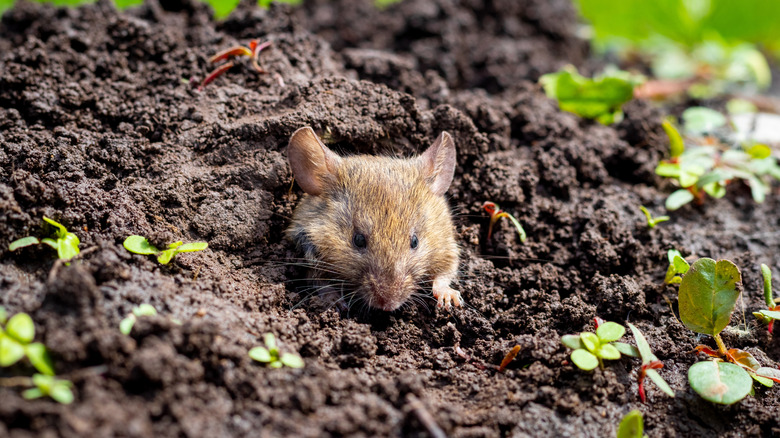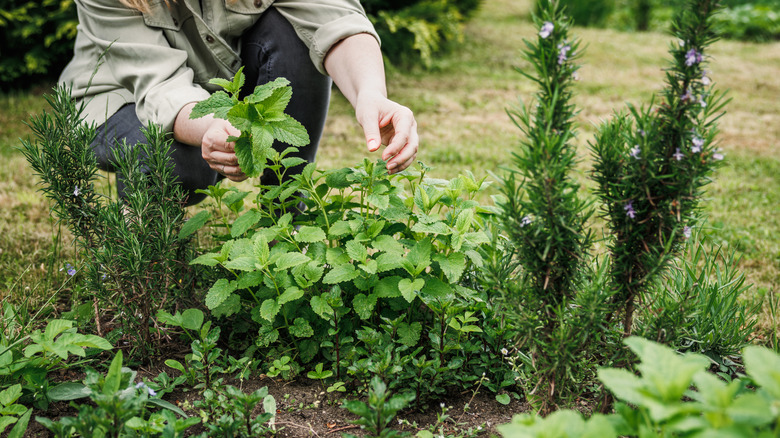Keep Mice Out Of The Garden With A Refreshing Herb They Can't Stand
Imagine walking into your garden and noticing small bite marks on your tomatoes or tiny tunnels under your mulch. These are classic signs of a mouse problem, and now your peaceful green space feels invaded. While some gardeners swear by mint as one of the plants that repel mice, the truth is a little more complicated.
Mint plants like peppermint and spearmint are packed with sharp-smelling oils such as menthol, menthone, and carvone. These oils are what give mint its signature scent, which is refreshing to us, but overwhelming to mice. In a lab test published in the Thai Journal of Veterinary Medicine, it was found that rats spent noticeably less time near areas treated with peppermint oil, suggesting the strong minty scent made them back off. A 2023 review of natural rodent repellents also included peppermint oil among several essential oils, like chili and camphor, that have been studied for their potential to keep rats away.
These natural options show promise, but how well they work can really depend on how much you use them and the environment you're using them in. But before you start planting mint everywhere, it's worth knowing the limitations. The experts at NC State Extension caution that scents like peppermint aren't dependable on their own. The oils break down quickly in outdoor conditions, especially in wind, rain, or heat. Once the smell fades, mice often return. So, it works best as a supporting player, not your main line of defense.
How to grow and use mint to repel mice
If you're thinking of adding mint to your garden to help keep mice away, plant it smartly. Mint is exceptionally easy to grow and also one of the fastest to spread. It sends out underground runners that can quickly take over garden beds. That's why it is better to grow mint in pots or confined containers.
To get the strongest scent, take care of your mint plant properly. Water it regularly, but avoid overwatering or heavy fertilizing, which can actually reduce oil production. For the best fragrance, snip off any flowers that appear and harvest the leaves often. This encourages lush, leafy growth with more aromatic oils. Keep in mind, though, the scent from plant extracts is much milder than concentrated oils. So, for a stronger effect, you should create a DIY peppermint spray for your garden.
Fill a spray bottle with water, add 10 to 15 drops of peppermint oil, shake it well, and mist it around garden edges, entry points, or even on surfaces where mice might roam. Just be sure to test it first, as peppermint oil can sometimes stain fabrics or damage surfaces. However, on its own, it won't solve a full-blown mouse problem. For long-term control, pair it with proper sanitation, closing entry holes, and setting traps. But if things get out of hand, don't hesitate to call a pest control professional.

